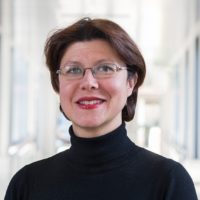
Organ donation innovative strategies for Southeast Asia: ODISSeA
Patricia Peralta1, María Paula Gómez2, Elisa Vera2, Ricard Valero3, Martí Manyalich2,3, Marco Zanello4, Mirela Busic5.
1CETT-University of Barcelona, Barcelona, Spain; 2DTI Foundation, Barcelona, Spain; 3Surgery and Surgical Specializations Department, Faculty of Medicine, University of Barcelona, Barcelona, Spain; 4University of Bologna, Bologna, Italy; 5University of Zagreb School of Medicine, Zagreb, Croatia
Introduction: ODISSeA - Organ Donation Innovative Strategies for Southeast Asia is an Erasmus+ project funded by the European Commission, with the aim to design & implement an academic postgraduate programme on organ donation (OD) in 8 Southeast Asian (SeA) universities from Malaysia, Myanmar, Philippines and Thailand and 3 European universities.
SeA has the lowest rate of organ transplantation and highest growing demand. The gap analysis in the SeA region highlights the need for a solid framework for deceased OD alongside legislation, healthcare reform and education.
Methods: A descriptive diagnostic and interventional study was conducted to provide an in-depth mapping of different key parameters.
I. The survey included a set of key words and YES/NO questions to identify respondents’ perception and attitude on OD.
II. It included existing training programmes and an OD self-assessment (SA) evaluation of items of clinical knowledge (A/n=21) and of non-clinical competencies (B/n=18). A Likert 5 scale score was used (1 (poor) to 5 (excellent)). SeA universities sent the questionnaire among target groups: university personnel, faculty members and potential postgraduate trainees.
III. Based on results, a Train the Trainers (TxT) blended learning programme was designed and implemented for future SeA trainers, healthcare professionals (HCPs). Pre and post course evaluation results were compared (on a scale from 0 (very poor) to 10 (excellent)).
Results: I. Both trainers and trainees defined OD as respectful (84.85% vs 77.01%) and positive (78.79% vs 64.37%) and reported a positive attitude about donation after death (80% vs 90.9%).
II. Out of responses received (n=145) 8% were university personnel, 24% trainers and 68% trainees. Data showed scarcity of training in OD in SeA, with 6.25% at University level. Comparing SA results among trainers (n=33) and trainees (n=86) in group A of items (A/n=21), 37% vs 54% scored poor to average while 30% vs 20% scored very good to excellent. The overall average score was 2.91 ± 0.39 SD vs 2.49 ± 0.31 SD respectively.
In group B (B/n=18), 19% vs 35% scored poor to average while 49% vs 25% scored very good to excellent. The overall average score was 3.43 ± 0.67 SD vs 2.83 ± 0.48 SD respectively.
III. HCPs trained in TxT (n=41, F=58.54%/M= 41.46%) completed successfully the training. Pre and post testing shows knowledge increase of 15.14% with an overall average score of 6.67 ± 0.96 SD in pre-test vs 7.68 ± 0.66 in post-test.
Conclusion: The innovative approach of ODISSeA as a multilevel educational intervention revealed different results between trainers vs trainees on perception and attitude, clinical knowledge vs non-clinical competencies. Both group A and B showed a higher self-assessment score on very good to excellent for trainers. Significant knowledge increase was reported upon completion of TxT.
Based on gap analysis and completion of TxT, a multilevel Postgraduate Programme in OD is currently ongoing, targeting 301 HCPs.
ODISSeA Consortium.